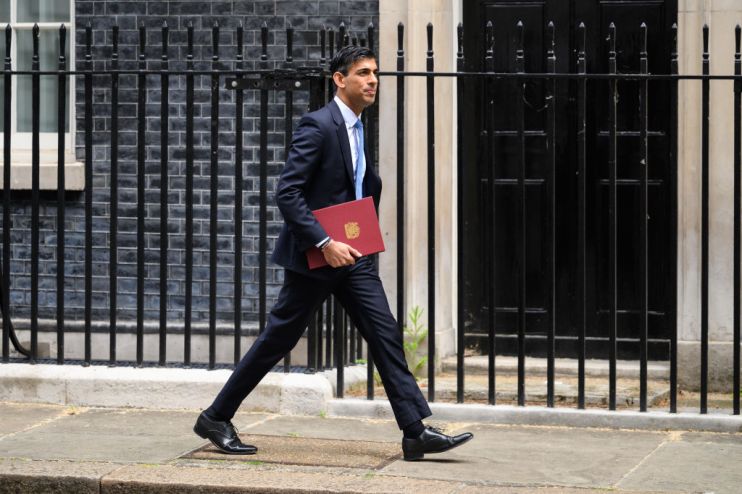Oil prices could take seven years to calm down, warn industry experts

Oil prices could take seven years to return to normal levels, warned energy analysts – reducing the prospect of the windfall tax on North Sea oil and gas operators being lifted in the near future.
Chancellor Rishi Sunak left the door open for a reversal of the policy when speaking to the Treasury Committee yesterday, revealing that the Energy Profits Levy will be withdrawn if oil prices returns to “historically more normal levels.”
When pushed on the matter, he suggested prices would need to drop to around $60-70 per barrel for the tax to be lifted.
He said: “I think that if you look at the average Brent price over the last, say, five or 10 years, that would give you a number of something like $60 or $70 for oil.”
Currently, oil is trading near $120 per barrel on both major benchmarks, after eight years of trading below the $100 milestone.
Prices hit a 14-year high of $139 per barrel in March after the UK and US announced bans on Russian oil imports.
Both WTI and Brent Crude benchmarks have since remained elevated amid rebounding post-pandemic demand alongside fears of supply shortages following Russia’s invasion of Ukraine and persistent capacity issues at OPEC.
Further Western sanctions have elevated supply shortage fears, with the European Union finalising a ban on seaborne shipments earlier this month, to match both its coal embargo and US and UK restrictions.
Ole Hansen, head of commodity strategy at Saxo Bank, told City A.M.: “Given the current tightness driven by supply being challenged, not only due to Russian sanctions, but also due to lack of belief in the long-term demand outlook for oil reducing much needed investment into the sector, the outlook for lower prices looks fairly remote.”
“Looking at the Brent crude oil forward curve, the market is not pricing in sub $70 oil for the next seven years at least.”
Craig Erlam, senior markets analyst at OANDA, also dismissed the idea of prices receding to conventional trading levels.
He told City A.M.: “It’s hard to imagine oil prices dipping back below $70 any time soon given the dynamics in the market, not to mention the geopolitical backdrop. Of course, it’s hard to see too far into the future in these extremely uncertain times but the fundamentals support prices well above $70 for some time.”
“With that in mind, it’s hard to see the levy being withdrawn unless immense pressure from within the party forces a u-turn which looks highly unlikely under the circumstances.”
Rising oil prices challenging to tame
The Energy Profits levy imposes a further 25 per cent tax on North Sea oil and gas operators, on top of the 40 per cent special corporation tax they are already required to pay.
The Treasury is looking to harness record profits of North Sea oil and gas traders to ease spiralling energy bills for households, and is expected to raise £5bn from the tax to partly fund a £15bn support package which will provide up £1200 per year savings for vulnerable energy users.
This follows warnings from market regulator Ofgem that the consumer price cap is likely to rise to at least £2,800 per year in Octobeer.
While the tax has a sunset clause of 2025 – industry experts expect prices to remain elevated over the foreseeable future, with both high energy prices and high oil prices baked into tight markets over the long-term amid volatility and supply chain disruption.
Commenting on potential methods to alleviate oil market rallies, Hansen said: “Apart from a more friendly view on Russia, being it through an unlikely regime change or a peace deal, only a deteriorating outlook for global growth lowering demand or sharply higher prices driving individual voluntary reductions could trigger lower prices.”
He concluded: “Crude oil is most likely to stay above $100 in 2022 with the short-term risk pointing to even higher prices. This is on the assumption EU sanctions will be carried out, Russian production will fall and OPEC+ (excl. Russia) will struggle to increase production.”
Investec has also confirmed it expects the windfall tax to remain in place until the sunset date of December 2025.
Nathan Piper, head of oil and gas research, told City A.M.: “We assume that the Windfall tax remains in place until the sunset date of end December 2025. We believe it unlikely any UK political party will reduce taxes on upstream producers even in a somewhat lower oil and gas price environment.”
“That said, we believe given tight oil and gas markets we’re moving into a phase of prolonged high oil and UK gas prices as production struggles to keep pace with building demand.”
The wealth manager also warned the tax could deter investment and accelerate plans of operators to exit the North Sea.